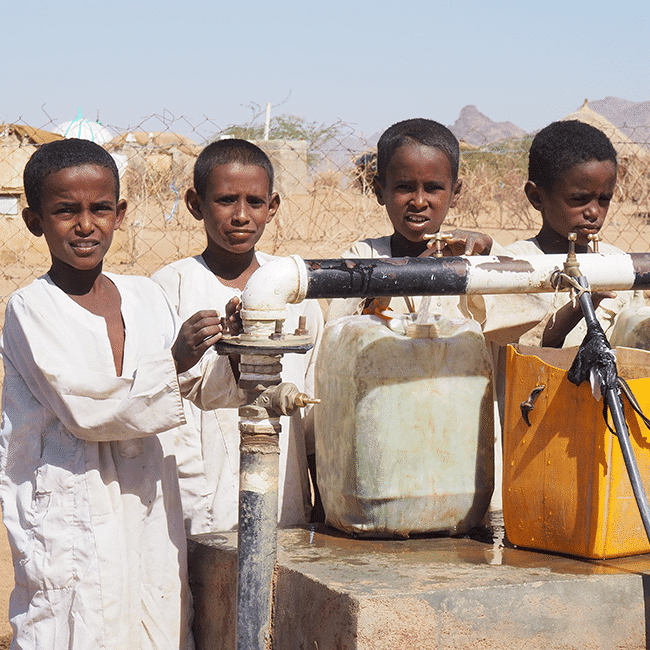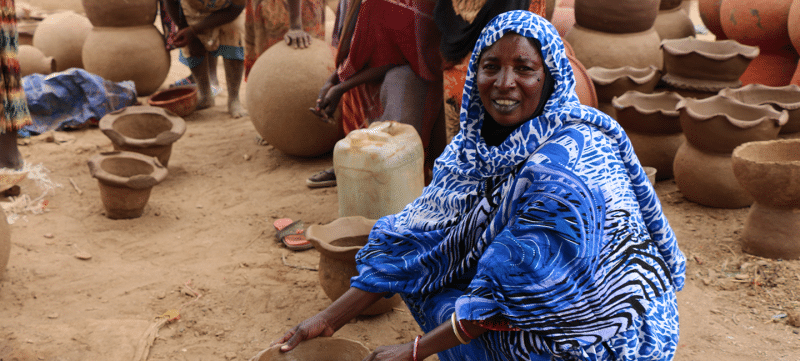In Sudan’s border regions of Kassala and Blue Nile, small-scale farmers have great potential to increase their income and reduce malnutrition and conflict. Practical Action supports communities in increasing their agricultural productivity and income-generating opportunities so people can support themselves even when times are deeply challenging.
Project overview
Title: Vegetables for Income, Nutrition and Employment in Sudan (VINES)
Dates: Nov 2023 – Aug 2024
Location: Kassala and Blue Nile states, Sudan
Our role: We work closely with small farmers to increase agricultural production with market solutions designed and led locally.
Participants: 6,000 small farmers in Kassala and Blue Nile States
Project budget: 500,000 USD
Aim: Farming that works
Lead donor: World Vegetable Center, as part of the USAID-funded Sustainable Agrifood Systems Approach for Sudan (SASAS) programme. 
“The project is targeting beneficiaries who have never had access to either advisory services or improved vegetable seeds and lack knowledge of good agricultural practices. And, for the first time in Blue Nile State, new cool storage facilities will be constructed.”
Abdallah Adam, VINES Project Manager
Context
Working to Ensure Food Security and Better Lives for Refugees and IDPs in Hosting States.
Kassala and Blue Nile, bordering Eritrea, Ethiopia, and South Sudan, hosts a large population of refugees and internally displaced persons (IDPs), numbering in the hundreds of thousands. The ongoing conflict in Sudan has exacerbated the situation, intensifying existing tensions between communities and triggering widespread displacement.
Despite their significant agricultural potential, both states face extreme food security and malnutrition issues, deepened by climate change and conflict challenges. Farmers face unpredictable weather patterns, making it harder for them to thrive. Additionally, the conflict disrupts market activities and trade within the states.
By working closely with farmers and communities in sustainable agricultural practices, enhancing market infrastructure, and promoting peacebuilding initiatives, there is an opportunity to improve the livelihoods of vulnerable communities in these regions, generating lessons that can be replicated in areas with similar challenges.
Our approach
Our approach centres on empowering farmers and improving market systems to enhance the resilience and profitability of local vegetable crops. Close collaboration with small farmer groups facilitates capacity building and knowledge transfer, emphasising the adoption of advanced agricultural techniques and best practices. For this project, 6,000 farmers in the Kassala and Blue Nile states will participate in this initiative, equipped with the necessary knowledge and tools.
- Collaboration and community engagement are crucial. We leverage initiatives such as Farmers Field Schools (FFS), home gardens, and vegetable nurseries to encourage learning and skill development among farmers. Additionally, we prioritise the production of organic fertilisers from local materials to enhance productivity in an environmentally sustainable manner.
- Strengthening the seed system by providing improved and certified seeds is another vital component of our approach. This ensures farmers can access high-quality seeds, improving crop yields and overall agricultural productivity.
- Addressing post-harvest losses is crucial, so we work on establishing aggregation points, drying facilities, and cooling storage units to preserve the quality of harvested produce. Furthermore, we prioritise value addition through processing activities and packaging, boosting farmers’ income opportunities.
- Our approach also extends to improving farmers’ market access by connecting them to buyers and organising farmer groups. By fostering collaboration and knowledge exchange, farmers can drive positive change in agricultural productivity while being more prepared to tackle climate impacts.
Our goals
Our goal is to improve livelihoods and food security by enhancing production and market systems and fostering inclusive and enduring agricultural livelihoods. To achieve this, we are working on:
- Empower farmers and farmer groups through training and the establishment of Smallholder Vegetable Growers Groups, enhancing their capacity and access to quality seeds.
- Provide subsidized vegetable seeds to smallholder farmers, ensuring affordability and promoting increased productivity.
- Strengthen market systems by facilitating aggregation and connecting farmers or Vegetable Business Networks (VBNs) to input and output markets, facilitating the sale of fresh vegetable produce.
- Enhance capacity by introducing improved production and post-harvest practices and technologies, equipping farmers and agro-dealers with the necessary skills for success.
-
Aims
We aim to revitalise local agriculture and empower farmers for sustained growth and prosperity. Through targeted interventions and strategic partnerships, we’ll strengthen the agricultural landscape and enhance food security in our communities.
- Establishing 60 Small Farmer Vegetable Groups to foster collaboration and knowledge-sharing among local farmers.
- Setting up 7 demonstration sites and 20 learning plots, including farmer field schools, equipped with technologies such as drip irrigation units, to showcase innovative farming techniques and facilitate experiential learning.
- Distributing improved seed packages (okra, tomato, jute mallow, and sweet pepper varieties) to 2,000 farmers, ensuring access to high-quality seeds for enhanced crop yields.
- Establishing 8 aggregation points, cool storage, and drying facilities to minimize post-harvest losses and ensure the quality and freshness of harvested produce.
Sustainable Development Goals
This project contributes to the 17 SDGs’ progress.
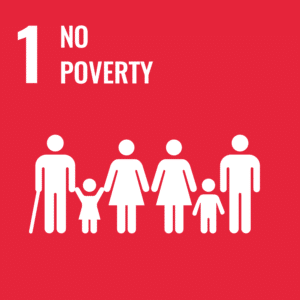
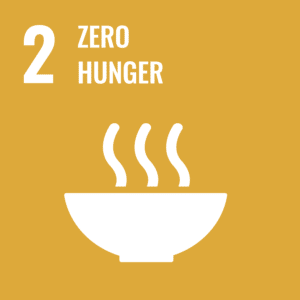
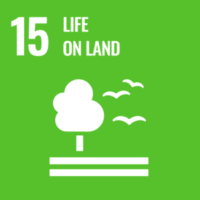
This project promotes sustainable land management.
Work like this depends on your support
Help us work with communities to tackle some of the world’s toughest problems
Project funded by:


